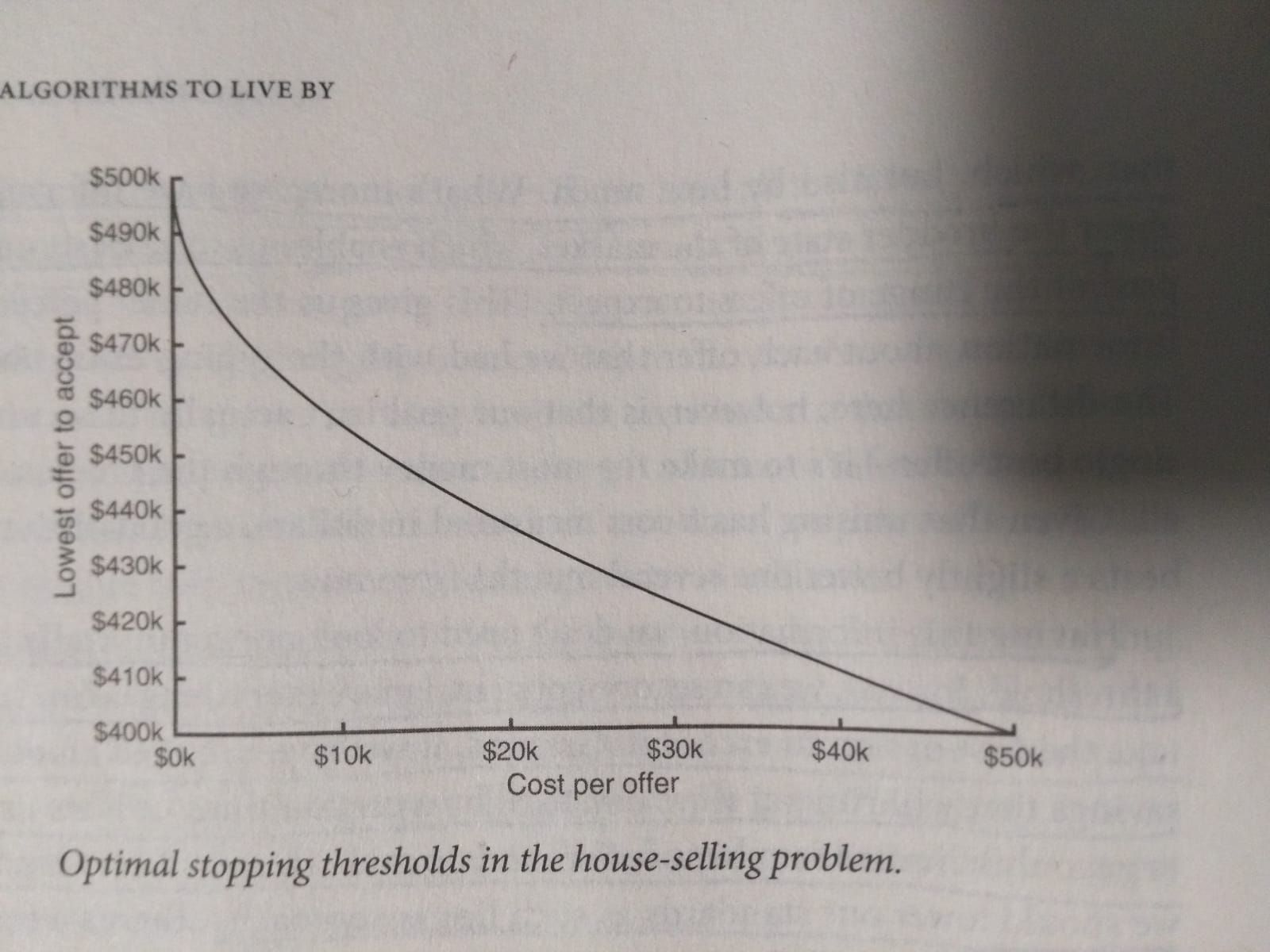Algorithms To Live By #4: How Does The Secretary Problem Changes With More Information?
For the proper understanding of this post, you will need to know about the secretary problem. You can find information on it in an older post. In the last edition of 'Algorithms To Live By', we discussed what happens when we change one requisite of the secretary problem, the capacity to accept or reject an offer. When candidates are able to accept or reject an offer, then the secretary problem starts looking a lot like searching for a romantic partner. Today we are going to discuss what happens when we modify another assumption in the secretary problem, the amount of information we have on the candidate.
In the original secretary problem, we have no objective measurement of what candidate is better than another one, by how much, or by what standards, we only have an ordinal ranking (meaning that between any two, we can see who is better). In optimal stopping, this sort of problems are referred to as 'no information games'. Imagine a scenario where the only thing that mattered to be a secretary was her/his typing speed. Then we would have an objective measurement of how good she/he is. Furthermore, we could know exactly by how much is a candidate better or worse than another. In this scenario, we would say that we have full information. In problems where we have full information, the strategy of looking and then leaping changes. The looking phase is omitted and we dive directly into leaping. In other words, we only use the threshold rule and if a candidate is above that threshold, we immediately select him/her. The key here is that since we have all the information from the beginning, you do not need to look through the crowd to set a standard. In this scenario, the strategy renders a 58% chance of hiring the best candidate in the pool, compared to the 37% in the original secretary problem.
But in house selling and job hunting, even when it's possible to reconsider an earlier offer, and even if that offer is guaranteed to still be on the table, you should nonetheless never do so. If it wasn't above your threshold then, it won't be above your threshold now. (Algorithms To Live By, p. 23)
Selling a house seems like a very close example of a secretary problem with full information. You know the objective value of the offers and you know the broader state of the market which enables you to predict the ranges of offers to expect. Therefore, the proper approach would be to define a threshold and accept any offer that surpasses it. What are the limitations? Waiting for more offers to come has a price. This price can be another mortgage payment. So, a good offer today beats a slightly better offer several months from now. As it turns out, the mathematical model that optimizes the profits only takes into account three things, the highest expected offer, the lowest expected offer, and the cost of waiting for another offer. For example, consider the expected offers to be between 400,000 and 500,000. If the cost to wait for another offer is 10,000, then an offer of around 455,000 should suffice. If the cost of waiting for another offer is 50,000 then an offer on the lowest range, 400,000 should suffice. Even though it is not a completely linear relation (chek image below), it is very close to it. When you think about it, this approach can also be useful when job hunting. When to accept an offer? Apparently all you need to know is the expect range of the offers and the cost of waiting for the next one.
To me, all of this just tells me that beggars can't be choosers and that sometimes you need to lower your standards, hahaha. At least this model tells you by how much...
Sources:
If you want to check out other thoughts that this awesome book has evoked, click on these past posts:
- Algorithms To Live By #1: Expectations, Authors, And Algorithms
- Algorithms To Live By #2: Optimal Stopping - How Long To Look For And When To Stop To Find The Best (The 37% Rule)
- Algorithms To Live By #3: The 37% Rule Applied To Partner Searching
Best,



Hope springs eternal...and that can be bad. Hoping for something better to come along isn't always the best decision :)
Agree.
You got a 35.67% upvote from @oceanwhale With 35+ Bonus Upvotes courtesy of @capatazche! Delegate us Steem Power & get 100%daily rewards Payout! 20 SP, 50, 75, 100, 150, 200, 300, 500,1000 or Fill in any amount of SP Earn 1.25 SBD Per 1000 SP | Discord server
You just planted 0.28 tree(s)!
Thanks to @capatazche
We have planted already 5346.84 trees
out of 1,000,000
Let's save and restore Abongphen Highland Forest
in Cameroonian village Kedjom-Keku!
Plant trees with @treeplanter and get paid for it!
My Steem Power = 25247.30
Thanks a lot!
@martin.mikes coordinator of @kedjom-keku